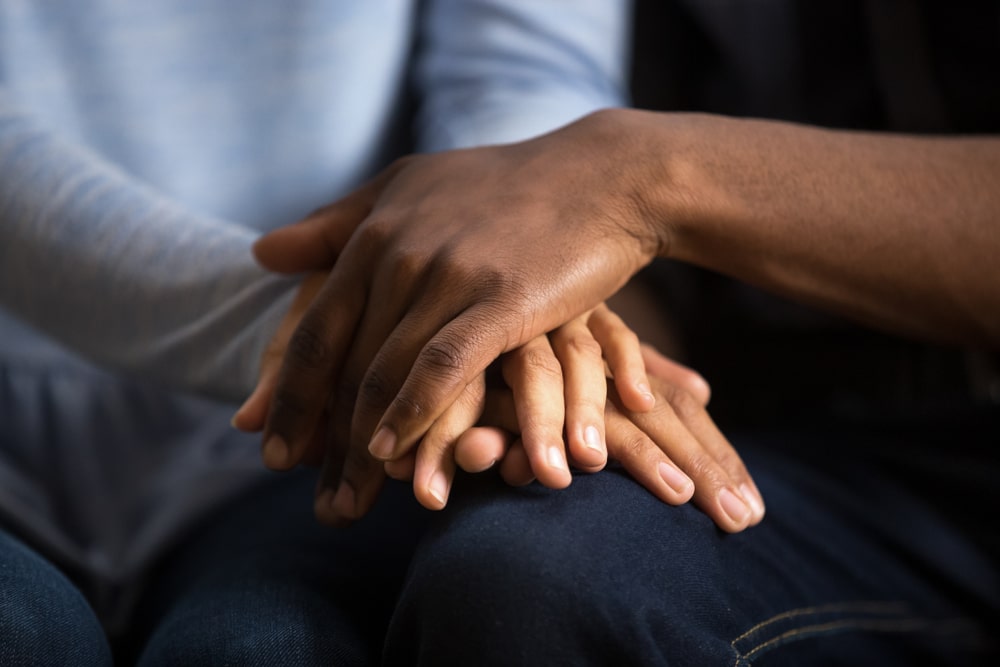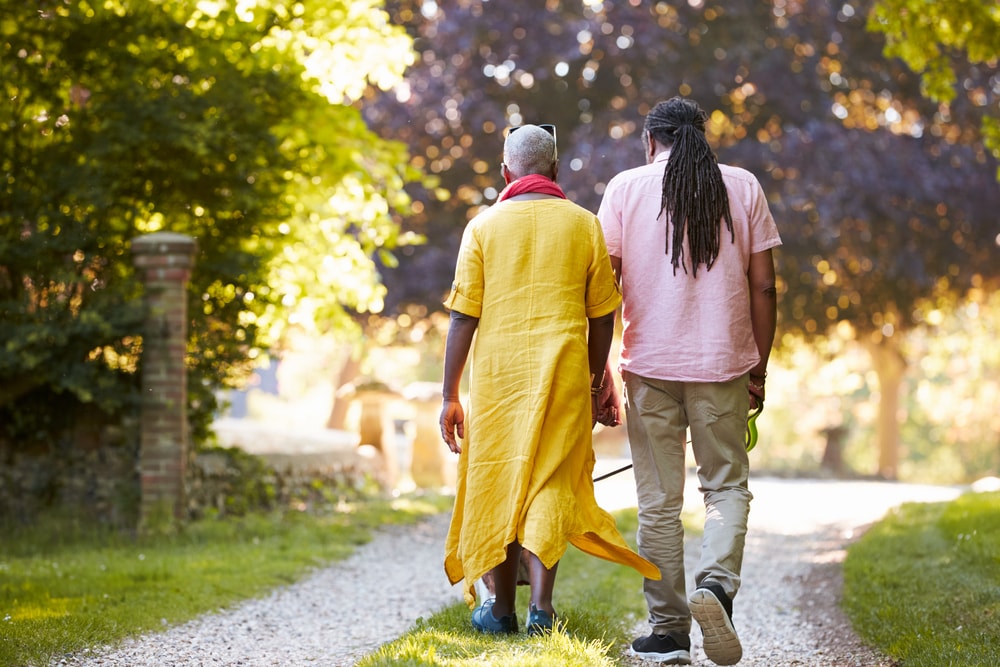Today, grieving can be difficult. Those who grieve often feel like they must “be strong” for others, whether it be family members, co-workers, or even strangers. We live in a world that encourages us to hide our pain and appear like we’ve “got it all together.” Many of us even shy away from our own pain, fearing that if we let our feelings have free rein, we will be seen as “out of control.” Our minds rebel against the idea of anyone seeing our pain, how deeply affected we are, how not okay we feel inside. But expressing our grief is the first step on the road to healing.
Grief is the natural result of love. When we love deeply and wholly, we open ourselves up to the grief that will come when the person we love dies. And while death is a part of life, the certainty of death doesn’t make it any easier. Did you know that the word “bereaved” literally means “to be torn apart”? So, by that definition, when we are grieving, we are being torn apart inside. It’s no wonder that we can become so tired, withdrawn, and quiet during times of loss.

The simple truth is that it’s okay to hurt. It’s okay to NOT “be strong” in the face of loss. It’s okay to give yourself permission to grieve, to give outward expression to the internal anguish of your soul. We need to be free to express our emotions, not hide from them or feel ashamed of them. They are what they are, and they are a natural response to what we’ve lost.
It will take time and intentionality to come to grips with everything you think and feel. The following grieving tips are meant to assist you and give you useful tools for navigating through the ups and downs of the coming months.
10 Helpful Tips When Grieving a Loss
1. Anticipate feeling a range of emotions.
People experience a wide spectrum of feelings at the loss of a loved one: shock, numbness, denial, confusion, yearning, anxiety, fear, guilt, sadness, relief, and more. You will certainly feel some – if not all – of these. It’s normal and natural to do so.
2. Don’t be afraid of your feelings.

You feel what you feel. It is what it is, and there is absolutely nothing wrong with the emotions that may be coursing through you. We all feel loss differently, and there is no comparison because every person and individual relationship is unique. Try not to stifle, ignore, or stuff down your feelings. Instead, accept that you feel what you feel and it’s okay.
3. Give yourself time.
Grief is a journey, not an event. You will need time to come to grips with what life looks like without your loved one. You aren’t necessarily going to spring back into life the way it was. It’s okay to give yourself a little space and take more breaks. Grief is hard work, and you need time to work through it.
4. Find ways to express your grief.

What you do is going to depend on your personality. For some, it’s helpful to go into the backyard and chop wood or go to the batting cages and just whack the balls over and over again. For others, creative expression is helpful. Many times, journaling, creative writing, painting, drawing, arts & crafts, or other types of self-expression help us make sense of the seemingly senseless feelings going on inside. And if you are a person of faith, prayer, meditation, or worship, these activities can help you express your grief.
5. Take care of yourself.
Most people feel more tired and less energetic when they are grieving. For this reason, it’s important to get plenty of sleep. If you are having trouble sleeping, stay hydrated, limit your caffeine intake, and sleep with your bedroom dark and relaxing. Additionally, eat healthy foods and participate in some kind of physical activity on a regular basis.
One thing to watch out for is numbing activities. It may start out as a coping mechanism but beware of allowing numbing activities to distract you from dealing with your grief. Common numbing activities are food, alcohol or drugs, anger, excessive exercise, TV or movies, books, isolating yourself, shopping, or losing yourself in work. While these may help you cope, they won’t help you heal and move forward after a loss.
6. Allow others to walk alongside you.

You don’t have to walk this road alone. In fact, it will be much less stressful if you do accept help from others. There’s an incredible scene in The Return of the King, the third installment of The Lord of the Rings. Throughout all three movies, Samwise Gamgee has faithfully walked alongside his dearest friend, Frodo Baggins. Together, as they seek to destroy a powerful ring and save all of Middle Earth, they face danger and hardships, feel lost and hopeless, and at one point, Sam even fears that Frodo has died. And then, the moment comes. Frodo is so near the end of this incredibly taxing quest – this journey that has sapped him physically, mentally, and emotionally – and he says, “I can’t do this, Sam.” After some fortifying words, Sam says, “I can’t carry it [the ring] for you, but I can carry you!” This is why we need friends along the hard journeys in life. They can’t carry our burdens for us, but they can help carry us along; they can provide the support we need to move forward and find new life and new meaning.
7. Take time to talk about your grief.
Sometimes it’s helpful to talk with a safe person about the emotions swirling around inside you. If you aren’t much of a talker or aren’t ready to be vulnerable with someone, write your thoughts down. However, if talking to friends and family simply isn’t working, then consider the benefits of a grief counselor. Sometimes the grief we feel is so incredibly deep that we need help getting back onto solid ground. If that’s you, it’s okay. You aren’t alone, and there is help.
8. Cultivate an attitude of gratitude.

During times of grief, we often turn our focus inward. While this tendency is natural, it may also lead to feelings of isolation and intense, singular focus on the loss we have suffered. Cultivating a lifestyle of gratitude can help you better process a loss by moving your eyes beyond your pain, allowing you to see the good things in life that still remain. Gratitude increases positive emotions and overall well-being, improves sleep, and fosters resilience.
9. Keep your loved one’s memory alive with traditions.
While death deprives us of a loved one’s physical presence, that doesn’t mean we’ve lost everything we love about that person. Our relationship becomes one based on memory rather than physical presence. So, use traditions to keep a loved one’s memory alive. Our personal traditions encourage us to remember. They comfort us and give us a sense of familiarity and peace. For example, if you and your loved one watched a certain movie every Christmas or birthday, keep the tradition alive as a way to feel close to them.
10. Treasure your memories.

Write them down. Tell the stories to others. Share the essence of the one you loved with those around you and keep their legacy alive. Your memories are your own to cherish forever and will be a continual reserve of peace and comfort. The grief journey is a meandering way, filled with many steps. And part of the journey is traveling back into your memories in order to move forward toward reconciliation. Your loved one may be gone, but their memory need never die.




